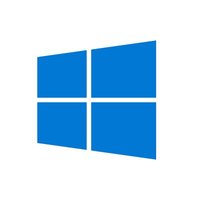Need advice about which tool to choose?Ask the StackShare community!
FreeNAS vs Ubuntu: What are the differences?
FreeNAS vs Ubuntu
FreeNAS and Ubuntu are both popular operating systems that are often used in server environments. While they share some similarities, there are several key differences between the two.
Storage Management: FreeNAS is primarily designed for storage management and includes advanced features such as ZFS file system, which provides data integrity, data compression, and RAID-Z for disk redundancy. On the other hand, Ubuntu is a general-purpose operating system that requires additional configuration and setup to achieve similar storage management capabilities.
User Interface: FreeNAS provides a web-based user interface that is specifically designed for managing storage and network configuration. It offers a user-friendly dashboard with intuitive controls for configuring and monitoring storage pools, sharing protocols, and other network settings. In contrast, Ubuntu primarily relies on a command-line interface (CLI), although it does offer some graphical interfaces like GNOME and KDE.
Community Support: Ubuntu has a large and active community of users and developers, which means there is extensive documentation, tutorials, and forums available for support. FreeNAS also has a community, but it is relatively smaller compared to Ubuntu. This difference in community size can affect the availability and quality of support for each operating system.
Hardware Requirements: FreeNAS has specific hardware requirements, especially for optimal performance with ZFS file system features. It requires a dedicated system with ECC RAM, higher CPU cores, and ample storage capacity. Ubuntu, being a general-purpose operating system, has more flexible hardware requirements and can be installed on a wider range of hardware configurations.
Application Support: Ubuntu benefits from a large ecosystem of software applications and packages due to its wide adoption in the Linux community. This makes it easier to find and install various applications for different server purposes. FreeNAS, on the other hand, is more limited in terms of available applications, as it is primarily focused on storage management and lacks the extensive software ecosystem of Ubuntu.
Updates and Releases: Ubuntu follows a regular release cycle, with new versions being released every six months, and Long-Term Support (LTS) versions being released every two years. This means users can benefit from the latest features and updates at a faster pace. FreeNAS, on the other hand, has a slower release cycle and updates are more focused on stability and bug fixes rather than introducing new features.
In summary, FreeNAS is a specialized operating system focused on storage management with advanced features like ZFS, while Ubuntu is a general-purpose operating system that requires additional configuration for storage management. FreeNAS offers a user-friendly web interface, but Ubuntu primarily relies on a command-line interface. Ubuntu has a larger community and software ecosystem, while FreeNAS has specific hardware requirements and a slower release cycle.
Ubuntu is much more faster over Windows and helps to get software and other utilities easier and within a short span of time compared to Windows.
Ubuntu helps to get robustness and resiliency over Windows. Ubuntu runs faster than Windows on every computer that I have ever tested. LibreOffice (Ubuntu's default office suite) runs much faster than Microsoft Office on every computer that I have ever tested.
Global familiarity, free, widely used, and as a debian distro feels more comfortable when rapidly switching between local macOS and remote command lines.
CentOS does boast quite a few security/stability improvements, however as a RHEL-based distro, differs quite significantly in the command line and suffers from slightly less frequent package updates. (Could be a good or bad thing depending on your use-case and if it is public facing)
At the moment of the decision, my desktop was the primary place I did work. Due to this, I can't have it blow up on me while I work. While Arch is interesting and powerful, Ubuntu offers (at least for me) a lot more stability and lets me focus on other things than maintaining my own OS installation.
Pros of FreeNAS
- Very Stable2
- Easy to install2
Pros of Ubuntu
- Free to use230
- Easy setup for testing discord bot96
- Gateway Linux Distro57
- Simple interface54
- Don't need driver installation in most cases9
- Open Source6
- Many active communities6
- Software Availability3
- Easy to custom3
- Many flavors/distros based on ubuntu2
- Lightweight container base OS1
- Great OotB Linux Shell Experience1
Sign up to add or upvote prosMake informed product decisions
Cons of FreeNAS
Cons of Ubuntu
- Demanding system requirements5
- Adds overhead and unnecessary complexity over Debian4
- Snapd installed by default2
- Systemd1









































